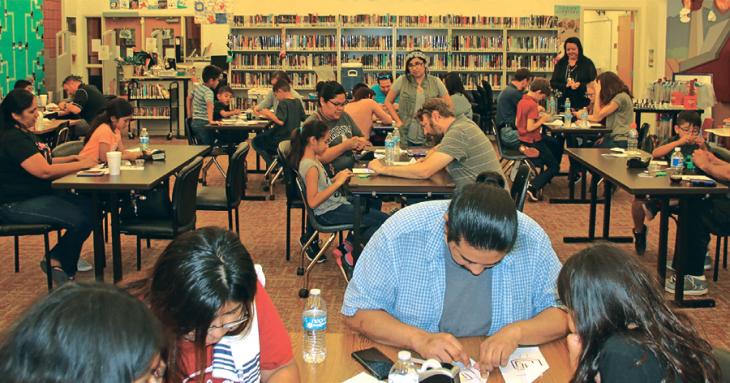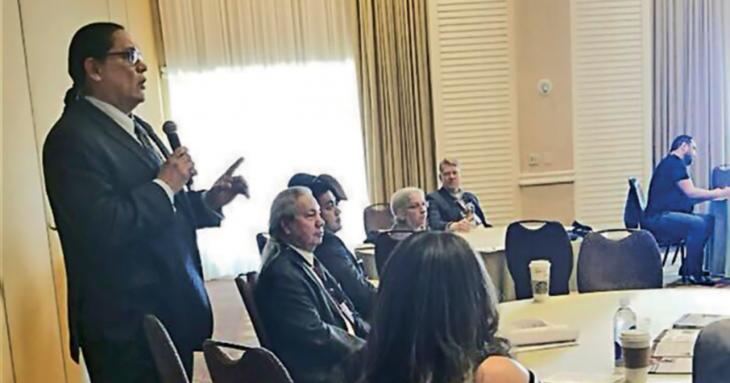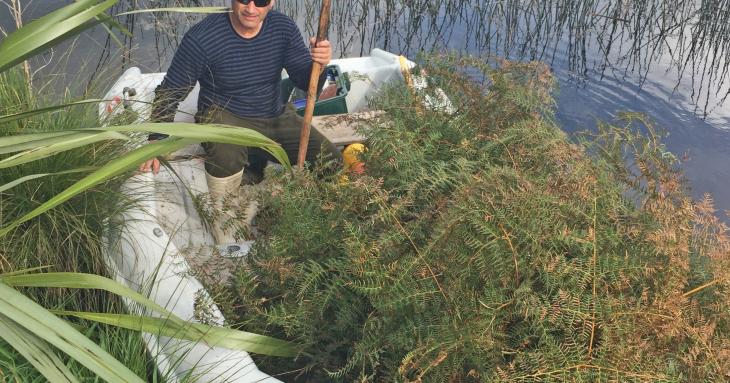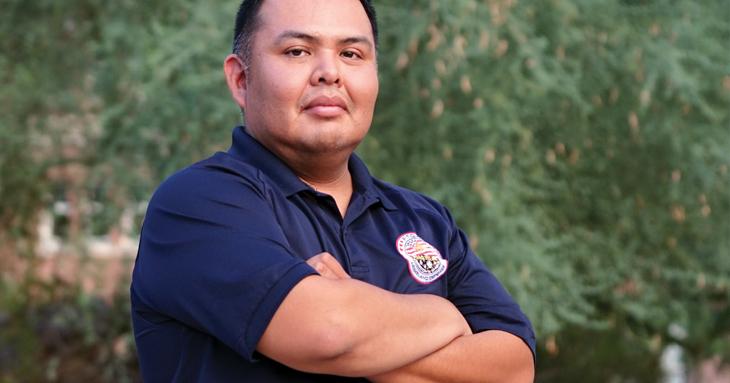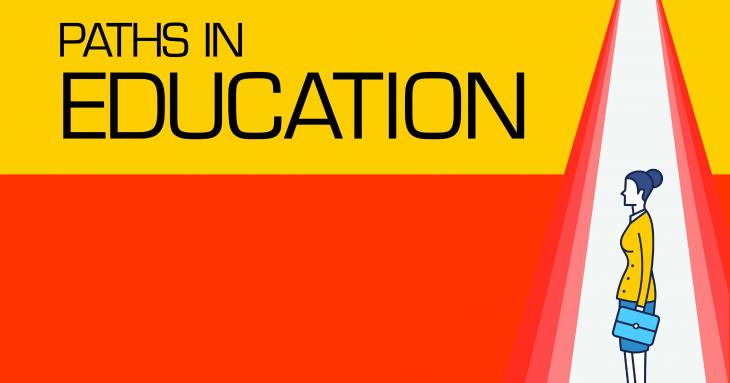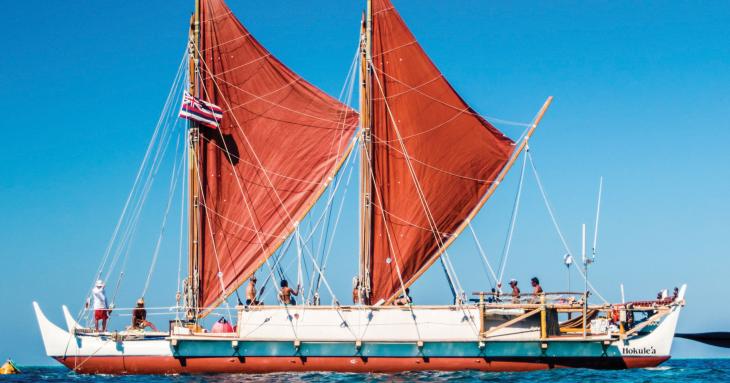-
E-Textile Workshop Inspires Educators: Bringing Computer Science Skills to Rural Communities
Nationwide, there’s a call to broaden participation in computer science — with good reason. The lag in computer science knowledge is especially critical in rural America, where even many blue-collar jobs now require substantial computer skills. Native Americans in rural communities are far less likely than their peers to have access to advanced STEM courses. What’s more, they often lack access to a reliable internet connection outside school.
-
The Tribal Nations Advisory Council
One of two new advisory councils officially launched at the 2017 AISES National Conference, the Tribal Nations Advisory Council (TNAC) has an especially timely mission. (The other new council is CIAC: the Canadian Indigenous Advisory Council.) TNAC’s inaugural meeting at the conference gathered more than 30 tribal leaders to discuss a pressing issue at the intersection of AISES and tribal communities: developing a skilled STEM workforce in Indian Country. TNAC members, who represent tribes from across the country, meet both by phone and in person at conferences.
-
Refocusing on Indigenous Knowledge
Indigenous traditional knowledge of the lands, waters, sky, and long been dismissed by Western science as anecdote , mythology, or even superstition. But thanks to the efforts of Indigenous and non-Native scientists and educators, that perspective is changing.
-
Joshua John: 2018 Most Promising Engineer or Scientist Awardee / Navajo
It’s not much of an exaggeration to say that a single question changed the direction of Joshua John’s life. He was studying for his undergraduate physics degree at Northern Arizona University when he took a quantum mechanics class. “I asked the professor how this would be used and what the applications were,” recalls John, who graduated in 2005. “My professor said those are questions an engineer asks, not a physicist. He encouraged me to go into engineering after graduating.”
-
Deanna Burgart: 2018 Blazing Flame Awardee / Fond Du Lac First Nation
Deanna Burgart’s decision to change careers came about suddenly and unexpectedly. She was attending a luncheon for women in the oil and gas industry when one of the speakers quoted author Steve Farber. “She said, ‘Do what you love in the service of people who love what you do,’” remembers Burgart. “I burst into tears. I realized I wasn’t doing either.”
-
Paths in Education: Landing a Great Internship
You’ve heard it before: getting solid internship experiences on your resume is important. And with good reason — internships provide practical workplace exposure and marketable job skills, not to mention a chance to find a mentor, earn glowing letters of reference, and maybe even come away with a full-time job offer
-
Navigating a cultural revival
Sam Low stands in awe of his ancestors — and he isn’t alone. “They possessed ships that were capable of traveling the world,” says Low, an anthropologist, filmmaker, photographer, and lifelong sailor.
-
The North Star AISES Alliance and Professional Chapter
The busy North Star AISES Alliance and Professional Chapter (NSAAP) has a big reach, representing professional members all over the Upper Midwest (Minnesota, Wisconsin, North Dakota, South Dakota, Iowa, the Upper Peninsula of Michigan, Nebraska, and Illinois), as well as the province of Manitoba in Canada. The chapter is a leader in promoting the AISES mission and supporting STEM in Native communities throughout Region 5. In addition to having fun, members find a lot of satisfaction in what they achieve together.
-
10 Top Stem Fields
Everyone wants a job that is personally satisfying and improves the world. Few career paths offer as many different ways to achieve both objectives as geoscience.
-
GIS Technologies Engage Young Native Americans in Natural Resource Preservation
A map can speak many languages, reach many audiences — and significantly support the stewardship of natural resources. Where geospatial data is needed, geographic information systems (GIS) are an important tool for building maps that locate information related to flora and fauna, cultural preservation, and recreation, among other applications.
Featured Stories
From Winds of Change Magazine and Paths to Opportunities Newsletters


